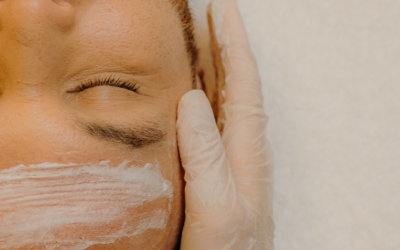Let’s talk about Vitamin A – the #1 ingredient you need to get your skin back on track!
We’ve heard so much about Vitamin A, especially in relation to good skin care, that it could be easy to dismiss it as ‘old news’ – especially when comparing it to the hype around more ‘vogue’ topics such as peptides – however this humble ingredient is essential for so many parts of skin health, that we decided to give it the love and recognition it deserves!

We’re big fans of our vitamin A products at TFP.
What do we know about Vitamin A?
- It is essential for life – as with the rest of your body, the skin cell could not exist without it
- It behaves like a hormone in that it is a messenger and stimulates many metabolic processes.
- It is very vulnerable and is constantly depleted by UV from the sun, UV lights, and environment.
- It needs to be constantly replaced (especially topically) for the skin to maintain good health
- It’s is known as a cell normaliser because any form of Vitamin A at the correct dosage can repair cell DNA
It comes in various forms which will be metabolised from one form to another to be readily absorbed into the skin cell as retinoic acid.
These are the different forms of Vitamin A, collectively referred to as Retinoids
- Retinyl Palmitate – fatty esters. This is a form of Vitamin A that the body stores.
- Retinal Acetate – fatty ester. This is also a form of Vitamin A that the body can store.
- Retinol – alcohol version (the chemical structure, not like the alcohol you drink!)
- Retinaldehyde – this type can convert back and forth from retinol to retinaldehyde
- Retinoic acid – is a form of Vitamin A important in regulating gene transcription, and bringing your DNA back to normal.
There is sometimes confusion about different names or types of Vitamin A. All forms of Vitamin A can be metabolised eventually into retinoic acid which is the form that enters the cell nucleus and repairs damaged DNA.
Common forms of Vitamin A are Retinol and retinaldehyde. They eventually convert to Retinoic acid, however but also convert back to the Ester or storage form which is great for UV protection (the medical term is that it is ‘photoprotective’).
Contrary to the belief of many, Vitamin A enhances your natural sun protection. The exceptions to the rule are that products like retinol should be applied at night to allow the Retinol to be converted to Retinoic acid, used by the cell as needed, and any Vitamin A not needed by the cell is converted back to the storage form of the Retinyl Esters.
Although prescription Vitamin A is retinoic acid, and can initiate DNA repair, it is unable to convert back to other forms, so builds up in the cell, and it is too much of this form, applied too often, that becomes photosensitizing.
Specific benefits of vitamin A in the skin
- It is another antioxidant necessary for UV protection (photoprotection).
- It can initiate ‘gene transcription’, the repairing or normalising of mutated or damaged DNA.
- It stimulates the fibroblast (skin cells) responsible for collagen production, improving the strength and thickness of your skin.
- It increases your natural hyaluronic acid levels which improves hydration and in turn improves cell communication.
- It maintains a normal or healthy rate of skin cells being produced, improving skin turnover – so important in conditions such as acne, and psoriasis.
- It impacts stem cells to produces healthy keratinocytes (skin cCells)
- It maintains healthy elastin so your skin stays supple and bouncy
Expected results of using regular vitamin A
- Reduction in sun related hyper-pigmentation (Sun spots, freckles)
- Thicker skin
- Reduction in fine lines, and wrinkles and pores
- More hydrated, luminous skin
- Even texture and colour
- Reduced erythema (redness)
- Normalises sensitised skin
Not using Vitamin A but interested in starting? Book in for an Initial Skin Consultation with one of our Medical Skin Therapists and start your journey to healthy, beautiful skin today!
From your Skin Team Leader, Lauren





